Are you gearing up for an account audit and unsure where to start? Crafting the right letter to request necessary documents can make all the difference in ensuring a smooth process. In this article, we'll walk you through a simple yet effective letter template that will cover all your bases. Stick around to discover how to tailor your request for the best results!
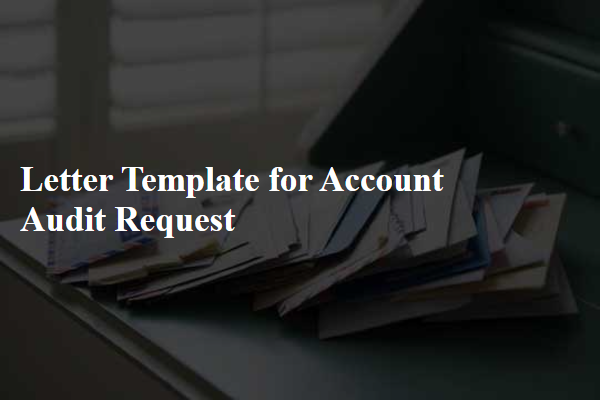
Subject Line Optimization
Subject line optimization in email communication is crucial for ensuring clarity and engagement. Effective subject lines should be concise yet clearly state the purpose. For instance, "Request for Account Audit - [Your Company's Name]" provides specificity. Including a deadline for when the audit is needed can motivate prompt attention, such as "Urgent: Account Audit Request Needed by [Specific Date]." Additionally, personalizing with recipient details boosts relevance, for example, "Audit Request: [Recipient's Name] - [Your Company's Name] Account." Employing keywords such as "Audit" alongside actionable phrases enhances urgency and provides context.
Clear Purpose Statement
A clear purpose statement for an account audit request should articulate the objective behind conducting the audit, emphasizing transparency and compliance. The audit examination aims to verify financial records accuracy, evaluate adherence to regulatory standards, and ensure operational integrity. Such audits are commonly performed following significant financial events, such as year-end reporting or following discrepancies. It establishes accountability and fosters stakeholder trust by highlighting the commitment to financial honesty and ethical practices in corporate governance. This proactive approach ensures alignment with regulations, giving stakeholders confidence in the organization's financial health and operational procedures. Potential areas of focus may include expense tracking, revenue recognition, and internal controls.
Contact Information
An account audit request requires clear contact information to facilitate communication and ensure all parties are well-informed. Include essential details such as the requestor's full name, such as John Doe; email address, for example, johndoe@email.com; phone number, ideally a mobile number like (555) 123-4567; company name, like XYZ Corporation; and the company address, including the city, state, and ZIP code, such as 123 Business Rd, Springfield, IL 62701. Adding a specific reference number associated with the account, such as Account #4567, helps streamline the audit process and ensures that the correct account is reviewed without confusion. Providing these details upfront improves the efficiency of the audit request.
Required Documentation List
An account audit request necessitates precise documentation to ensure a thorough examination of financial activities. Essential documents include bank statements from January 2022 to December 2022, reflecting transactions and balances. Invoices should detail services rendered and payments received during the same period, highlighting any outstanding amounts. Contracts with vendors and clients provide context for financial commitments, requiring copies for verification. Additionally, payroll records for employees during 2022 are crucial, encompassing wage details and tax withholdings. Tax returns submitted to the Internal Revenue Service (IRS) will further substantiate income and expenses. Lastly, any correspondence related to financial matters, such as emails with accountants or financial advisors, should be included to provide a comprehensive view of the organization's financial landscape.
Deadline and Response Time
An account audit request must include specific deadlines and response times to ensure timely compliance. The initial request should specify a deadline, typically 30 days from the request date, to collect necessary documentation such as transaction records and account statements. Follow-up reminders at intervals of 10 days can reinforce the urgency of the response. It is essential to clarify that a timely response is crucial to meet regulatory requirements set by relevant authorities, including the Financial Accounting Standards Board (FASB). Clear communication regarding these timelines fosters accountability and ensures a smooth audit process without unnecessary delays.

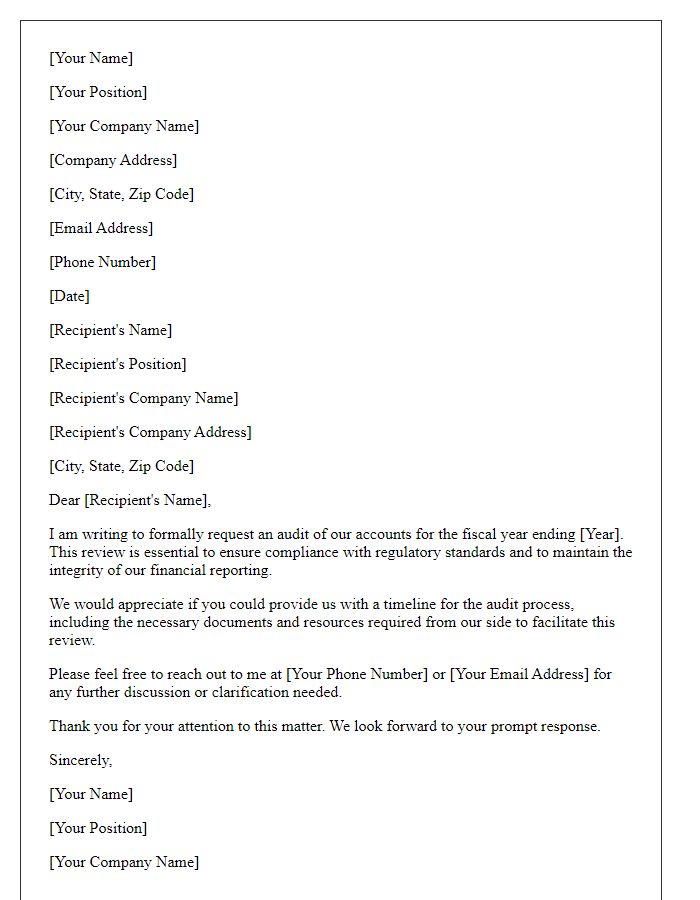
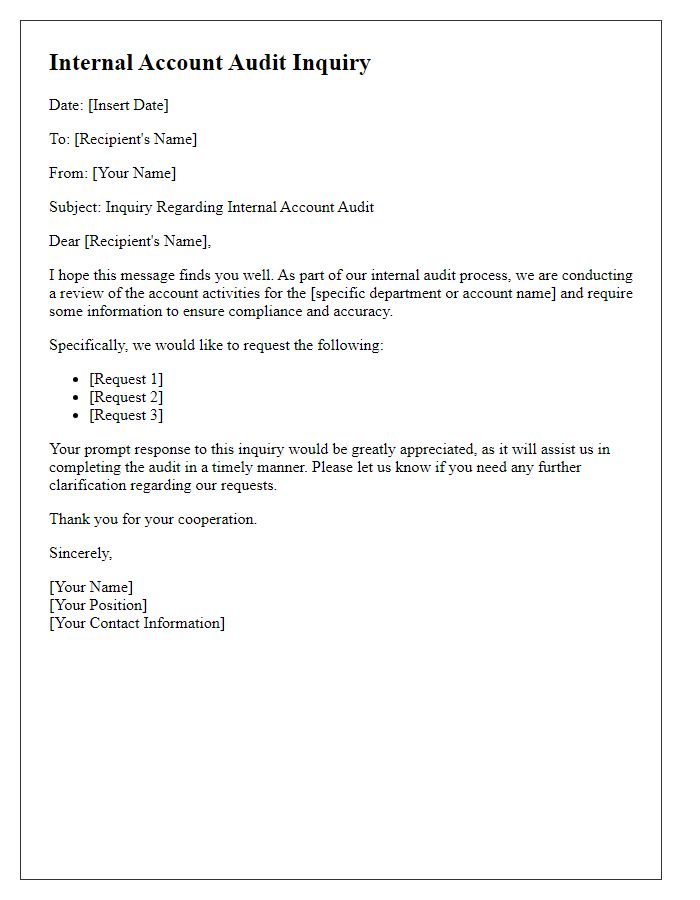
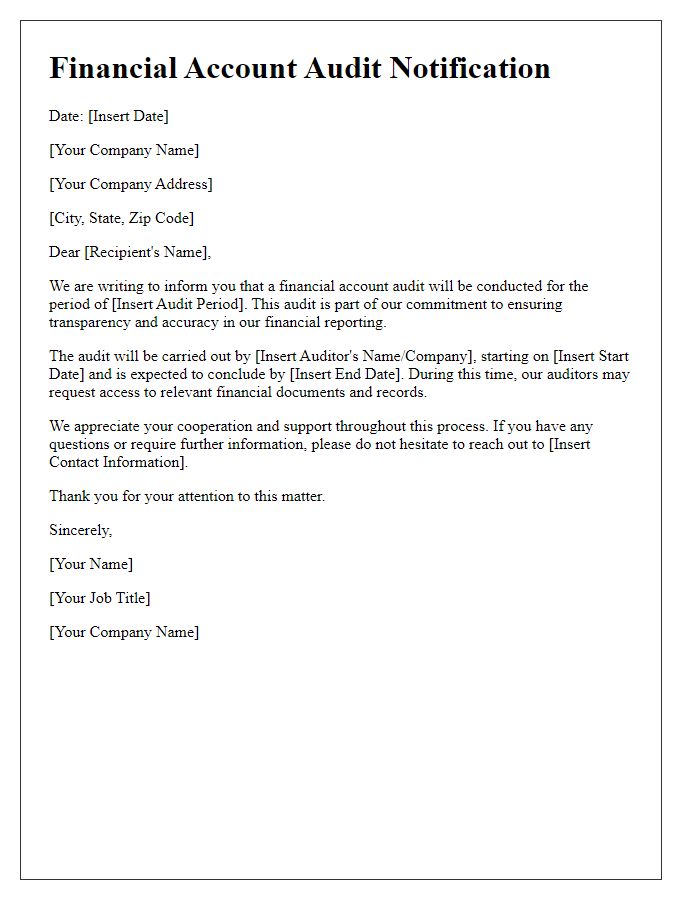
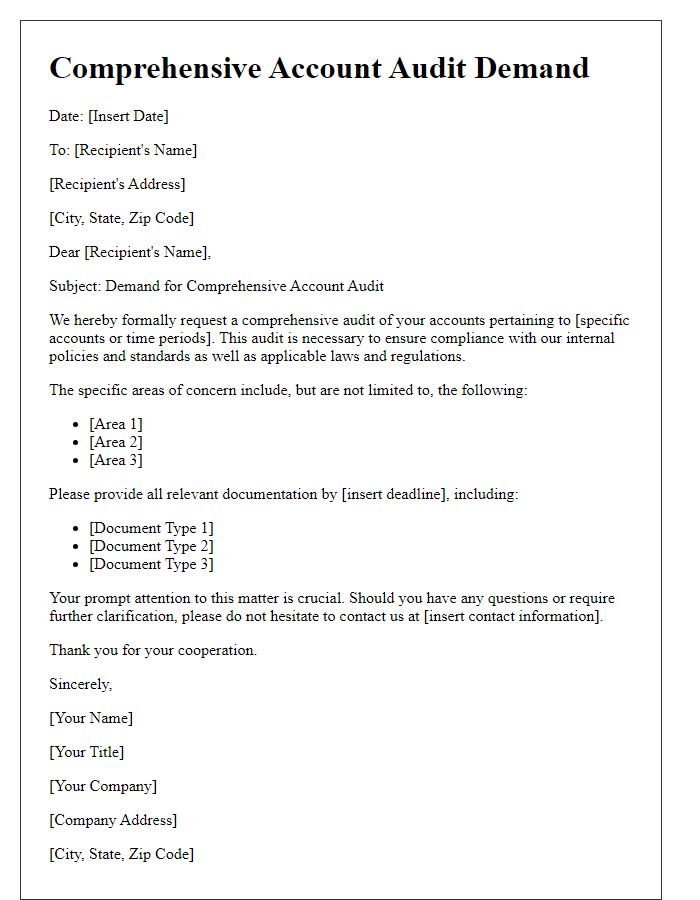
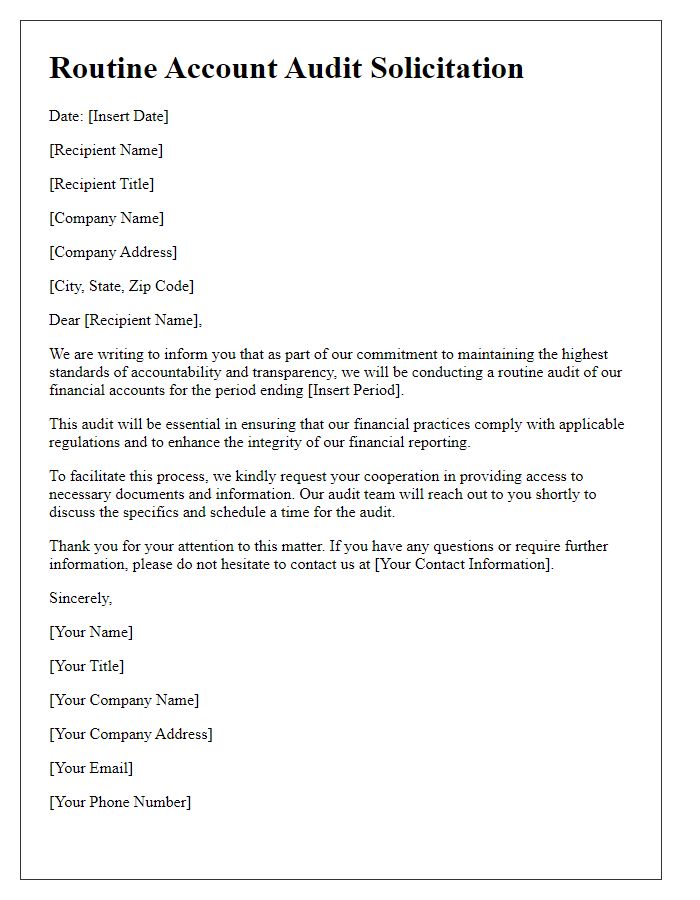
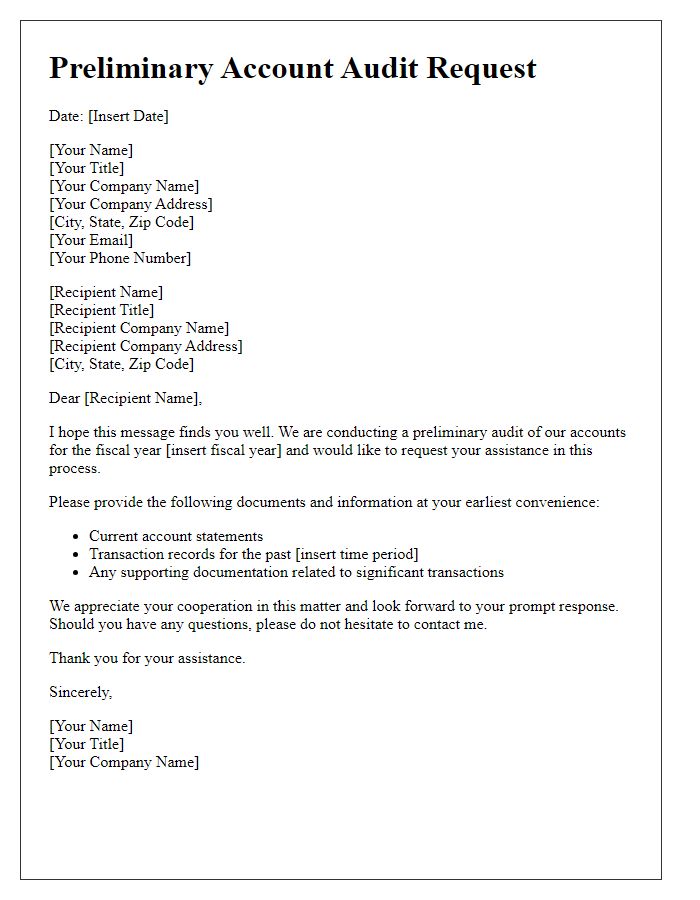
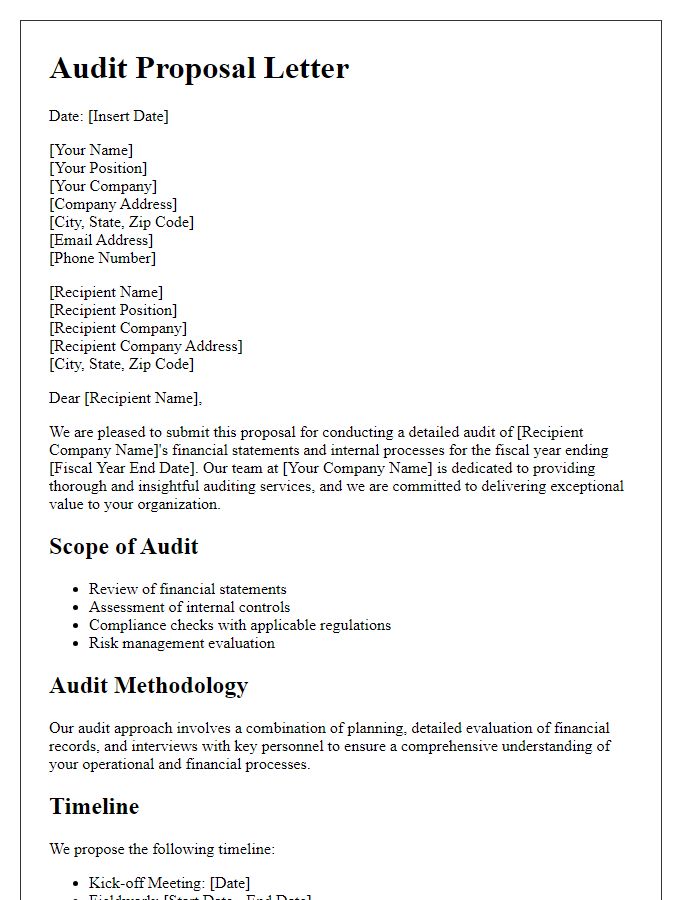
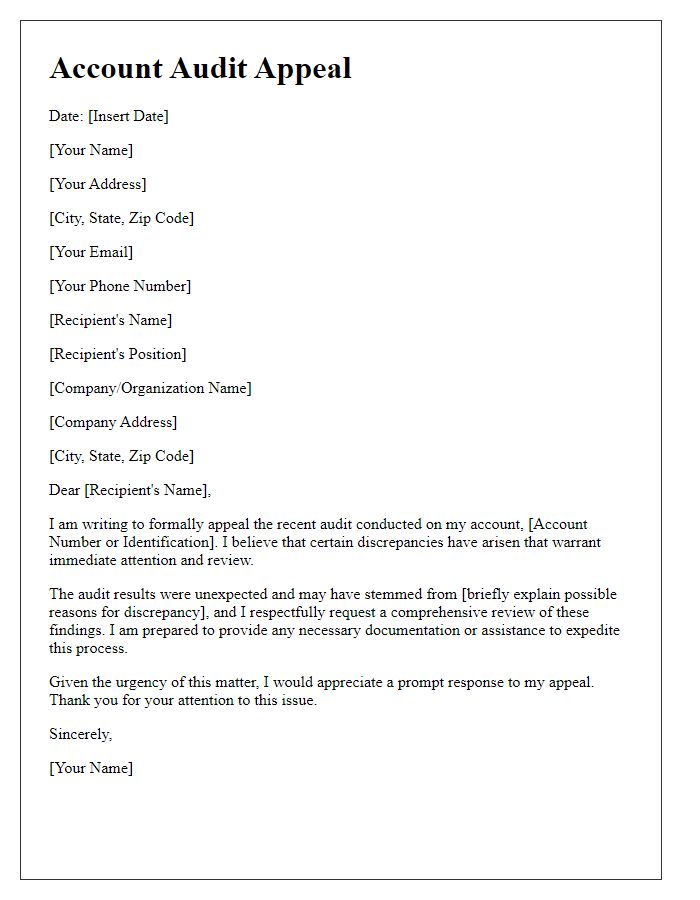
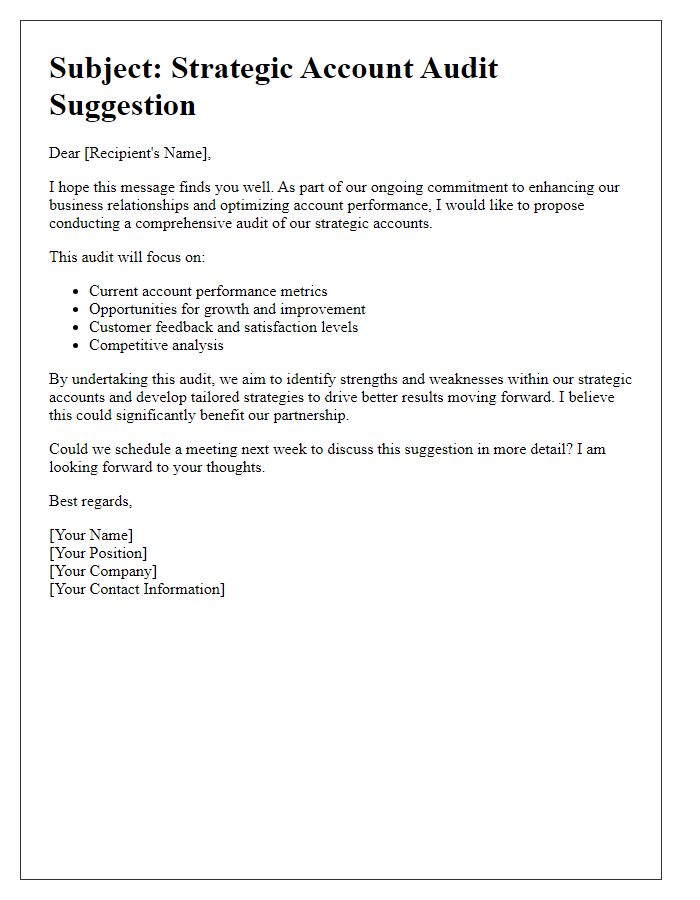
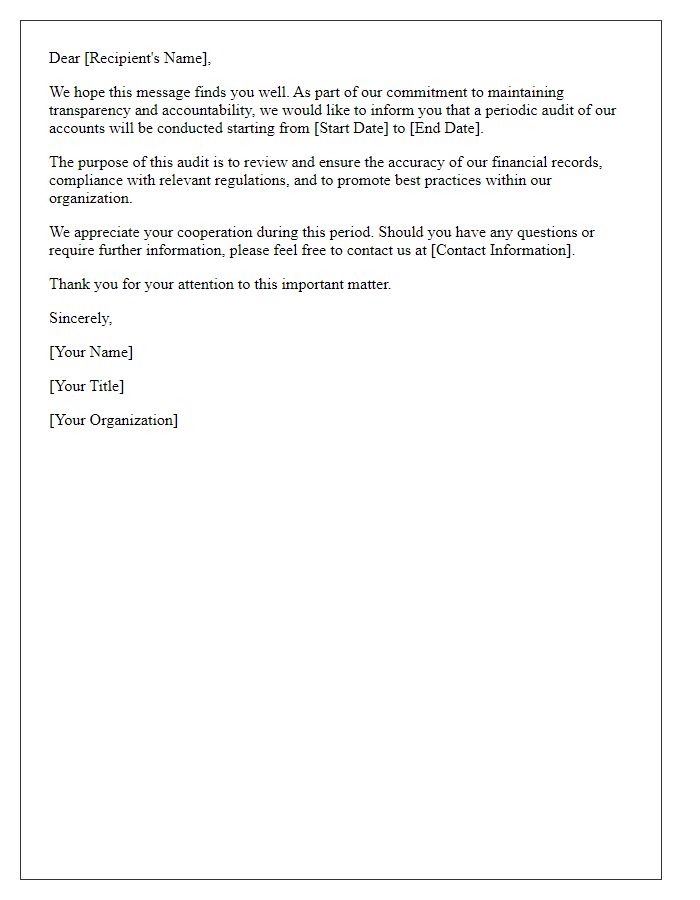

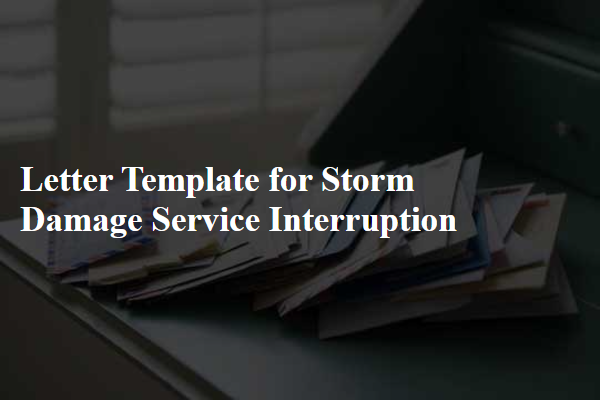
Comments